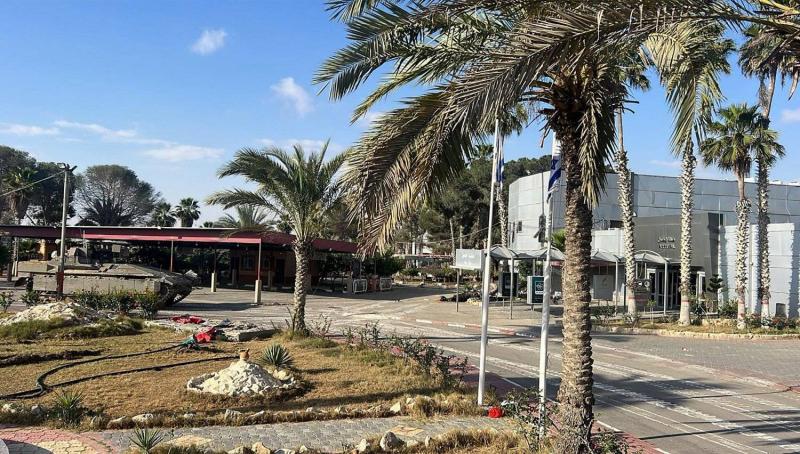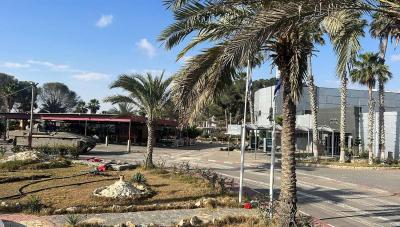An Israeli newspaper reported that control by the military over the Rafah crossing means that Israel will reoccupy Gaza, which could have implications under international law and complicate relations with neighboring Egypt. "Haaretz" noted in an analysis that the Egyptian Foreign Ministry condemned the Israeli military's incursion and control of the Rafah crossing, describing it as a "serious escalation" that threatens ceasefire efforts. Cairo also considered that this step endangers the lives of millions of Palestinians who rely on the passage of humanitarian aid.
The newspaper stated that Egypt was informed of Israel's plan to enter Rafah, but its diplomatic response is marked by great anger and greater fear that this step will not only undermine discussions about the release of hostages but also expand operations in Rafah, potentially pushing hundreds of thousands of Gaza residents to cross into Egypt.
Egypt is also examining the legal implications of a large military force entering the area, which is supposed to be demilitarized according to the Camp David Accords. So far, Egypt has refrained from holding public diplomatic discussions about the violation of the Camp David agreements to avoid interfering with negotiations, where Egypt has become the main mediator after Qatar reduced its role.
The American "Wall Street Journal" revealed that Egypt "threatened to stop mediating" in ongoing negotiations regarding a ceasefire in Gaza and the release of hostages held by Hamas, following Israel's control over the Palestinian side of the Rafah crossing. The newspaper quoted unnamed Egyptian officials stating that Egypt is "angry" because Israel "gave it a short deadline before taking control of the Palestinian side of the border crossing" on Tuesday and "threatened to stop acting as a mediator in the negotiations," which could jeopardize the talks.
Israel's control over the Palestinian side of the Rafah crossing significantly undermines the main influence that Egypt previously had over Hamas. Before the war, when the crossing was an open route for goods and people, coordination between Egypt and Hamas generated substantial profits for Egyptian intelligence officials overseeing the Egyptian side of the corridor, as reported by the newspaper.
White House National Security Advisor John Kirby stated on Tuesday that the Israeli operation in Rafah is limited in scale, scope, and duration and is "aimed at cutting Hamas's ability to smuggle weapons and money into Gaza." However, there is a tactical gap separating Kirby's statement from Israel's objectives, as Israel cannot control the Rafah crossing as an isolated enclave without seizing the eastern part of the Philadelphia Corridor unless an agreed alternative is found for its management.
According to the newspaper, Israel does not trust Egypt as "border guards" and suggested a few weeks ago allowing the Palestinian Authority to manage the Gaza side of the crossing or reinstating the 2005 crossing arrangements, which stipulated that foreign officials and inspectors would manage the crossing from Gaza while Israel would have the authority to grant or deny entry to people and goods.
However, Israel strongly opposes any proposal that grants the Palestinian Authority a foothold in Gaza, especially since the Authority conditions its participation in Gaza on a diplomatic move that would lead to the recognition of a Palestinian state.
The newspaper stated this week that Egypt, Israel, and the United States agreed that after military operations conclude, an armed civilian company, possibly American, would oversee traffic through the crossing, including inspecting trucks.
The analysis indicates that the problem with such a solution is that, in addition to the high costs of hiring a private security company, it is unclear who would be officially responsible for it—Israel or the United States—which is a crucial issue as it would determine who supervises the operation of the Rafah crossing and who sets operational policy.
It appears that until an agreed solution to this issue is reached, Israel will continue to expand and cement its position as an occupier of Gaza, with all the implications this status carries under international law.




